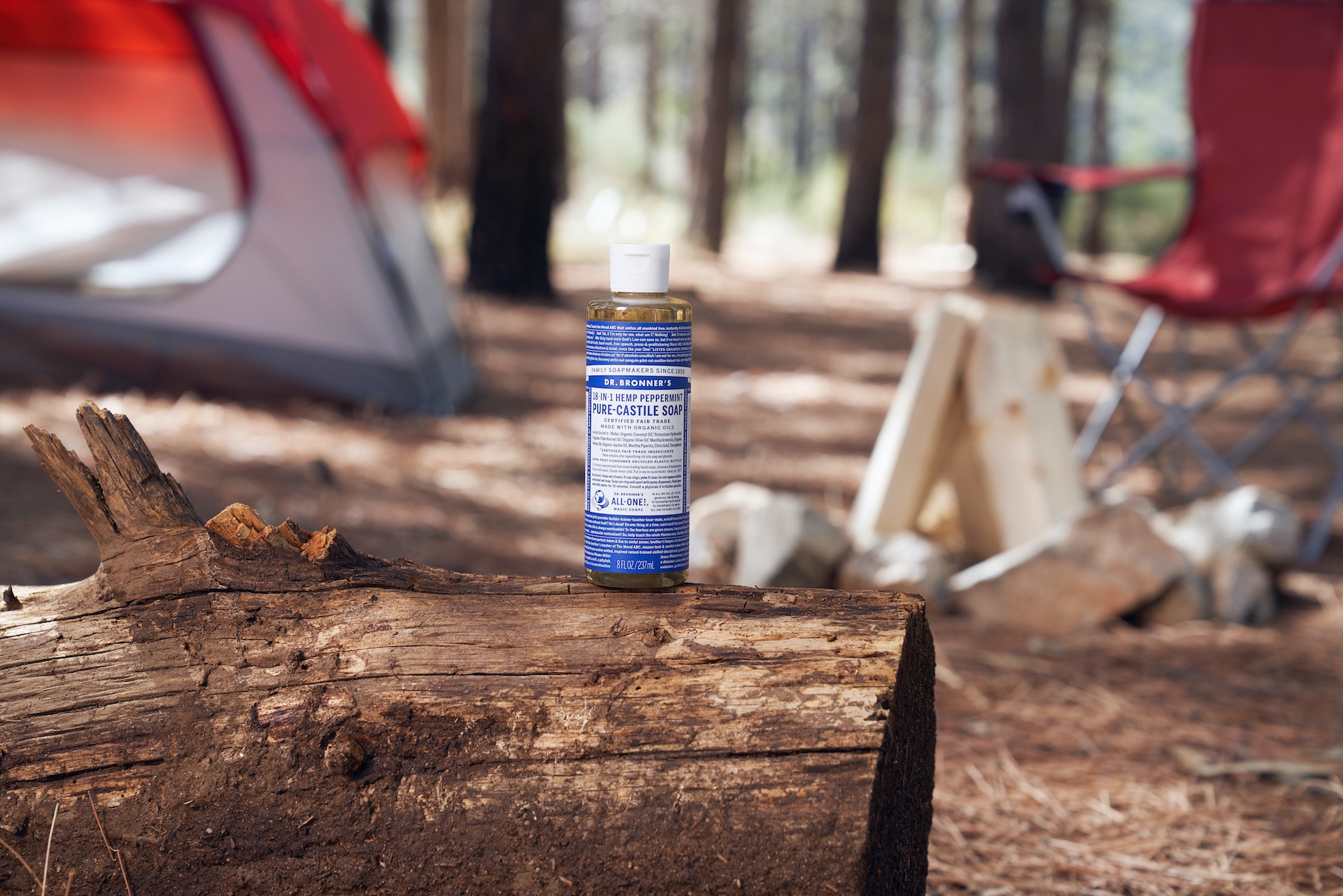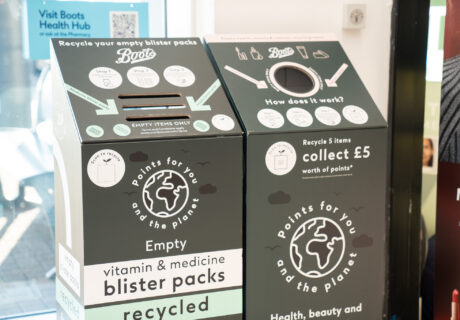US natural soap pioneer Dr Bronner’s has announced plans to drop its certification as the highest scoring B Corp, citing weak standards that enable greenwashing by multinational companies. The news follows a multi-year campaign calling on B Lab, the organisation that manages the certification, to meaningfully improve the B Corp standard.
Dr Bronner’s says B Lab has “failed to fulfill its promise to implement new standards to prevent the dilution of the B Corp mission and protect the certification from being used by companies who seek to use B Corp for marketing purposes to portray themselves as more ethical than they are in practice.”
Established in 2006, B Corp certification signifies that a company meets high standards of social and environmental performance, transparency, and accountability. Today, more than 8,000 companies across 196 industries worldwide have earned this certification. Dr Bronner’s first became certified as B Corp in 2015 and has increased its score with each recertification – most recently achieving the highest B Corp score globally to date of 206.7, surpassing the previously stated score of 200. The median score for all companies that complete the assessment is 50.9, and a score of 80 qualifies a company for certification.
David and Michael Bronner, CEO and President of Dr. Bronner’s released the following statement explaining the company’s intention to not recertify.
“To Dr. Bronner’s and many Certified B Corps, ‘Business for good’ is more than a trendy and profitable marketing strategy. As a purpose-driven company, we do business to model a more just economy, and to demonstrate that a truly constructive multi-stakeholder approach to capitalism could be the norm. The integrity of the B Corp Certification has become compromised and remaining certified now contradicts our mission.
The increasing certification of multinationals including Unilever Australia and Nespresso in 2022 followed by Nestle Health Sciences in 2023 demonstrated that B Lab is not committed to protecting the integrity of the B Corp Certification and movement, nor ensuring that the certification won’t be used to mislead consumers. Sharing the same logo and messaging regarding being of ‘benefit’ to the world with large multinational CPG companies with a history of serious ecological and labor issues, and no comprehensive or credible eco-social certification of supply chains, is unacceptable to us.
Dr. Bronner’s has long advocated to B Lab that certified companies, especially large multinationals, should be required to certify all major supply chains to credible eco-social certifications in order to be part of the Certified B Corp community. This requirement would prevent companies, who have the resources and ability to certify all their major supply chains yet choose not to do so at all or only in part, from pursuing B Corp Certification for marketing purposes. In terms of agricultural land area, number of workers and farmers involved, and scale of social and environmental impact, the supply chains of large CPG food, personal care, and textile companies dwarf the impact of their operations in the countries where they are headquartered.
The raw agricultural materials a company uses—whether meat, milk, eggs, palm oil, cocoa, coffee, cotton, and any others—are often produced in terrible ways in terms of social and environmental impact. The farming and subsequent post-harvest processing of raw materials, whether in oil and textile mills, slaughterhouses, or cut and sew shops, can be done in either an unethical and extractive way or a more sustainable and generative way, in terms of farmer, worker, and animal welfare, and soil, community, and ecosystem health.
Industrial agriculture and factory farming are ecological and social disasters, and key drivers of climate change and the sixth mass extinction event humanity is causing. Requiring credible third party eco-social certification of all major multinational supply chains would protect against the B Corp Certification being misused by companies to hide these unsustainable and unjust corporate practices. While some food, personal care, and textile companies certified as B Corps do take responsibility and certify all major supply chains to credible eco-social certifications, including our esteemed partners at Patagonia, they are unfortunately a minority and this is not required by B Lab, most glaringly in the case of large multinational companies and their enormous supply chains.
We have not seen adequate, transparent, and timely action from B Lab to update the standards or certification process to address our concerns. Now, our only recourse is to drop our certification. We hope our exit will prompt necessary and overdue action, and that allies who remain B Corp Certified will continue to push to improve the standard from the inside.
In its ongoing efforts to urge B Lab to strengthen its standards and certification process, Dr. Bronner’s joined other concerned B Corps in June 2022 to issue an open letter. The letter highlighted concerns over the certification of certain multinational companies with well-documented histories of unethical business practices. In January 2023, Dr. Bronner’s followed up with a private letter to B Lab leadership, stating that if meaningful changes were not implemented in the revised standards by 2024, the company would likely forgo recertification and drop its B Corp status.
Although Dr. Bronner’s B Corp Certification fee is covered through September 2025, the company has already started removing the B Corp logo from its branding and marketing materials.





